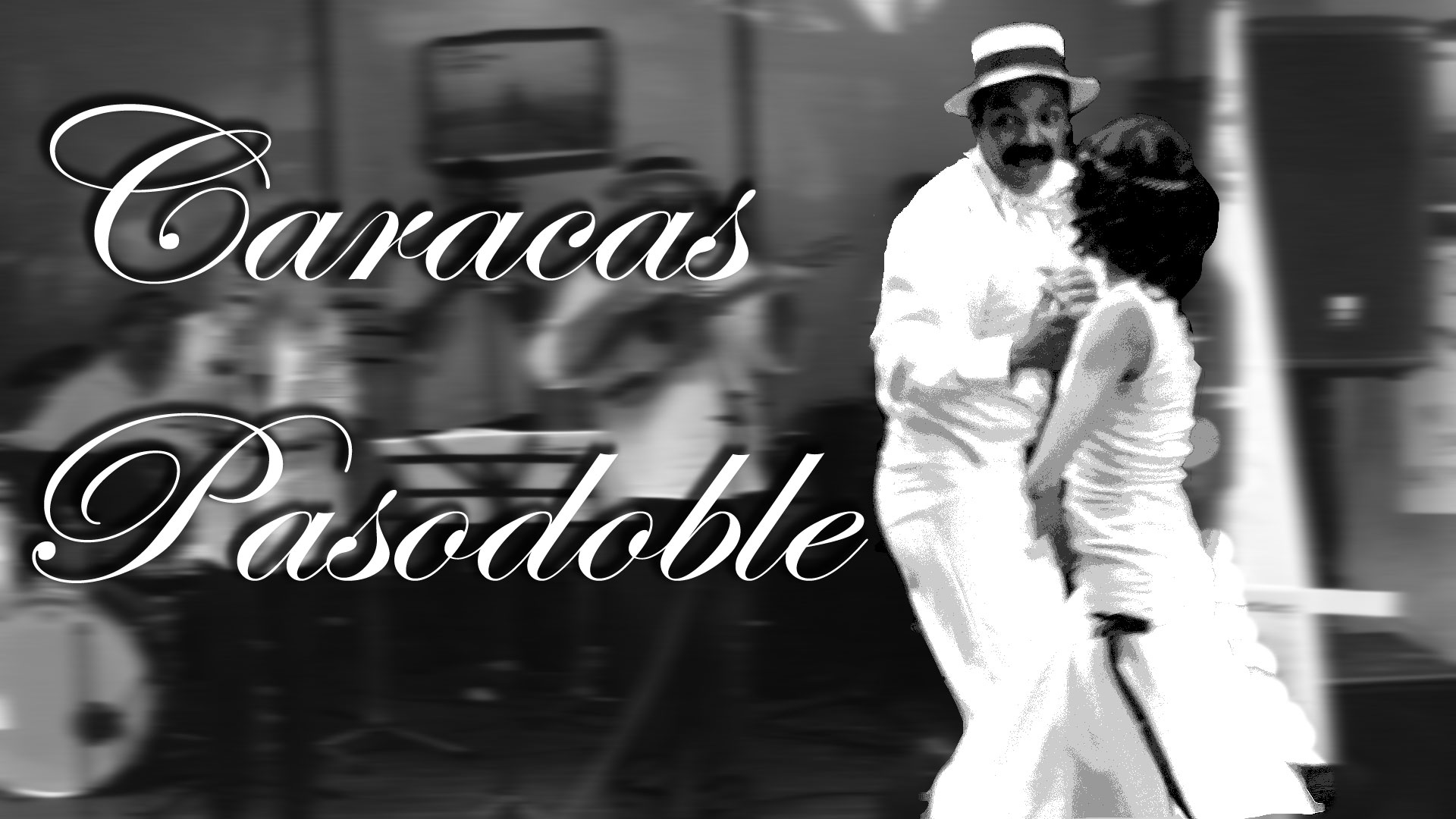Vernacular Pasodoble of Caracas, true or false?
As I said in a previous post (where I told about Venezuelan Merengue), the cañonera music, as well as the rhythms that are part of it, have been very little studied in Venezuela. Therefore, talking about the Caracas Pasodoble (if it exists) is a very controversial challenge.

To the sadness of all those who believe in a vernacular Pasodoble, the main interpreters of this genre such as the group Los Antaños del Stadium, affirm that this does not exist, that only the Spanish pasodoble exists. The same opinion is shared by Aníbal Escobar, also known as the "Dean of the Cañonero Sax".
Before entering the subject, let's see where the Pasodoble (or Paso doble) comes from.
Some statements made by the Wikipedia in Spanish are:
- The Pasodoble has its origin as a military march, which by etymology is believed to derive from the French Pas-redouble. It is a fast march of infantry that regulated and expedited the passage of soldiers ("double step", faster than the normal pace), and is already played by bands for military marches since 1780.
- It is known as Pasodoble the dance originated in Spain around 1533 and 1538. Used in several regions for the celebration of events, it is also one of the few couple dances that are still rooted today.
- The music that accompanies this march has binary compass and moderate movement and was introduced in the bullfights.
On the other side of the ocean
By the time Caracas begins to become a city, almost 100 years have passed since the country gained independence from Spain, but Spanish zarzuelas and operettas continue to be, at those times, one of the main attractions in almost all former Hispanic colonies.
The bullfights had adopted the Pasodoble as their soundtrack and in Venezuela the bullfighting parties were of great importance. Therefore, the Pasodoble was present among the musical forms that were played in the city.
But something interesting happened in Caracas. First, it happened that Spanish songs from other genres began to be played in pasodoble rhythm, especially the cuplés. And in the musical aspect there was an important change too, the Pasodoble lost the majesty that it brought from Spain, maybe influenced by the One Step that came with the Dixieland to Venezuela and rhythmically it was placed closer to the Polka. The syncopation and the off-beats were accentuated, the Venezuelan Cuatro was integrated to the instruments that accompanied this music and the lyrics became more local and jocular.
Pasodoble became part of the regular repertoire of the cañonero groups, orchestras and martial bands and also became part of the traditional festivities to be present at the festivities of Cruz de Mayo and carnivals, among others.
This musical form became so important that some of the most outstanding authors and composers of the time wrote songs in this rhythm.
All these elements are generally the factors that are taken into account when placing a label on a musical genre. If we take into account that in Caracas the Pasodoble was integrated to the traditional festivities, that it acquired a particular rhythm of its own, which is executed with a characteristic instrumentation that includes traditional instruments and also, in general, includes a characteristic and humorous lyrics; I think all these elements allow us to talk about a musical genre of the city of Caracas, the Caracas Pasodoble.
Conclusion
As an anecdote, I would like to tell you that I had the opportunity to perform at the carnival of 1985 in the city of Córdoba, Spain, the same Andalusia as the home of the Pasodoble. I went to play there with the group Los Cañoneros and of course we played the Caracas Pasodoble, by which the dancers told us "we like this a lot, but how do you dance it?", which also denotes the great difference that there is between these two musical manifestations.
Extras
A version of a Spanish Cuplé, sung by Raquelita Castaños in the 60s. La chica del 17.
I think this is the most important Caracas Pasodoble written by Leoncio Martínez "Leo", one of the most outstanding Venezuelan poets and writters, music by Francisco de Paula Aguirre, performed by Los Cañoneros.
La pelota de Carey, by Lorenzo Herrera, the most famous Caracas Pasodoble, performed by Los Antaños del Stadium.


Exclusive 30 days free upvotes to your every new post. No need to send any kinds of steem or sbd its full free service. we have paid service too so please check them too. Active the free upvote service and learn more about it here : http://www.steemitfollowup.gq
Hi @nanature! This has no relation to my post, it's more like spam. Please delete it or I'll flag it.
Thank you!
Hello! I find your post valuable for the art community! Thanks for the great post! ARTzone is now following you! ALWAYs follow @artzone and the artzone tag, and support our artists!